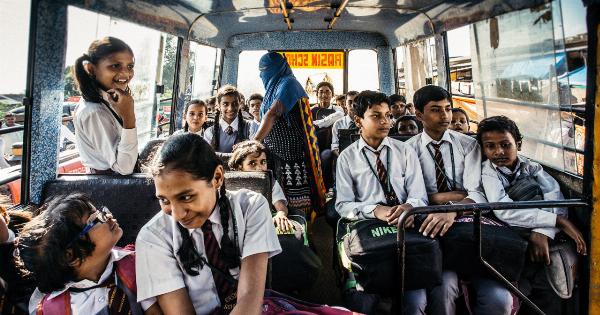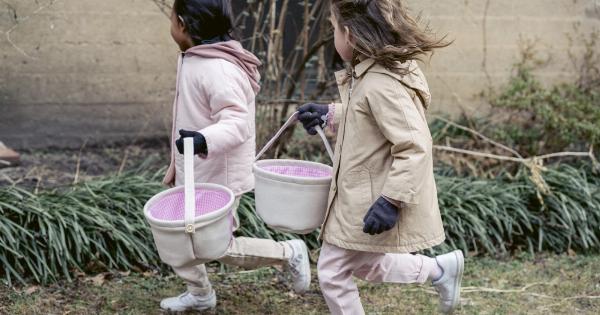Parenting is a significant responsibility that not only involves nurturing and guiding children, but also instilling values and ethics that shape their worldview and actions.
One important area of focus that parents can prioritize is environmental stewardship. By teaching and practicing environmentally conscious behaviors, parents can contribute to the preservation of the planet for future generations.
This article explores the relationship between parenting and environmental stewardship and highlights the ways in which parents can foster a sense of environmental responsibility in their children.
1. Leading by Example
Parents play a vital role in shaping their child’s behavior and values. By practicing environmentally friendly habits themselves, parents set an example for their children to follow.
Consistently recycling, conserving water and energy, and adopting sustainable lifestyle choices demonstrate the importance of environmental stewardship in everyday life. When children witness their parents actively engaging in environmentally conscious behavior, they are more likely to adopt these habits themselves.
2. Teaching the Importance of Nature
Parents can help their children develop a deep appreciation for nature by spending time outdoors and teaching them about the wonders of the natural world.
Trips to parks, gardens, or nature reserves provide opportunities for children to connect with the environment and develop a sense of awe and respect for its beauty. Explaining the importance of biodiversity, ecosystems, and the delicate balance of nature helps children understand why environmental stewardship is crucial.
3. Educating about Environmental Issues
Parenting involves providing children with knowledge and information that will shape their understanding of the world.
Teaching children about environmental issues, such as climate change, pollution, deforestation, and endangered species, empowers them to recognize the challenges our planet faces. Understanding the causes and consequences of these issues can motivate children to take action and support environmental conservation efforts.
4. Encouraging Sustainable Habits
Parents can actively encourage sustainable habits in their children’s daily lives. Teaching them to reduce, reuse, and recycle helps instill a sense of responsibility towards waste management.
Parents can also emphasize the importance of conserving resources, such as water and energy, by turning off lights, unplugging unused electronics, and reducing water consumption. Teaching children to be mindful consumers and choose eco-friendly products further reinforces sustainable habits.
5. Involving Children in Eco-friendly Activities
Engaging children in eco-friendly activities can nurture their connection to nature and reinforce the importance of environmental stewardship.
Gardening, composting, or participating in community clean-up campaigns are hands-on ways for children to actively contribute to a healthier planet. Involving children in these activities not only develops practical skills but also instills a sense of personal responsibility towards the environment.
6. Teaching the Three R’s: Reduce, Reuse, Recycle
Parents can educate their children about the three R’s of environmental sustainability: reduce, reuse, and recycle.
Explaining that reducing the consumption of resources, reusing items whenever possible, and recycling waste can significantly impact the environment helps children understand their role in protecting the planet. By incorporating these principles into daily routines, parents can instill lifelong habits that contribute to environmental preservation.
7. Developing Empathy for Living Beings
Parents have the opportunity to teach their children empathy towards all living beings, including animals and plants.
Teaching children to respect and care for animals by adopting a vegetarian or vegan lifestyle, supporting animal welfare organizations, or volunteering at shelters encourages children to extend their compassion to the environment as a whole. Understanding the interconnection and interdependence of all living beings promotes a sense of responsibility towards preserving their habitats.
8. Engaging in Sustainable Travel
Traveling sustainably is another way parents can contribute to environmental stewardship and teach their children about responsible tourism.
Opting for eco-friendly transportation, such as trains or hybrid cars, and staying in environmentally conscious accommodations demonstrates the importance of minimizing one’s carbon footprint. Exploring natural environments and engaging in eco-tourism activities can inspire children to appreciate the beauty and fragility of the world.
9. Supporting Environmental Initiatives
Encouraging children to support and participate in environmental initiatives helps instill a sense of civic responsibility.
Parents can engage their children in activities such as fundraising for environmental organizations, participating in marches, or volunteering for local conservation projects. These experiences provide children with a sense of empowerment and demonstrate the impact collective efforts can have in creating a sustainable future.
10. Fostering a Love for Outdoor Play
In today’s technology-driven world, it is crucial for parents to prioritize outdoor play as part of their child’s development.
Encouraging children to spend time outdoors, exploring nature, and engaging in unstructured play stimulates their connection with the environment. Outdoor play allows children to appreciate the natural world, learn about their surroundings, and develop a sense of responsibility towards protecting it.





























